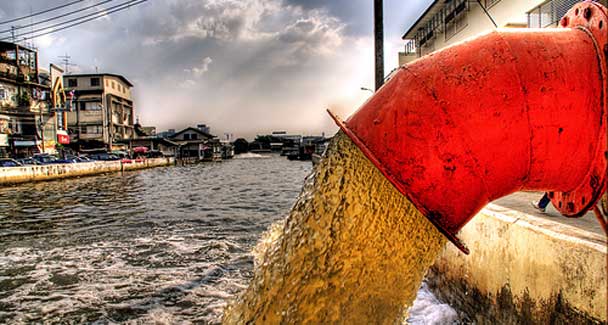|
Pakistan facing severe water shortages: UNDP
*
In the industry sector, the generation of excessive effluent, toxic nature of sewage and untreated discharge of effluent to natural water bodies were termed as the major water related issues. - File photo
MULTAN: Pakistan is facing severe water shortage and is fast moving from being a water-stressed country to a water-scarce country mainly due to its high population growth, said United Nations Development Program (UNDP) Regional Project Director Shafqat Niaz Kang at a one-day training workshop of the local government staff here on Friday.
The workshop was organised by the UNDP, Pakistan Council of Research of Water Resources and Community Initiatives for Development and Environment (CIDE) to raise awareness about water scarcity and conservation practices among the public. The local government staff from Multan, Khanewal, Vehari, Muzaffargarh and Lodhran districts attended the workshop.
Mr Kang said the availability of water was being endangered by a rash of new threats, including climate change and increase in population. He said that per capita availability of water in Pakistan had gone down so sharply.
He said that in the agriculture sector water availability decreased by 29 per cent due to over irrigation, untimely irrigation and use of conventional technologies in the agriculture.
He said that in the industry sector, the use of uncontrolled water quantities in production activities, generation of excessive effluent in production process, toxic nature of effluent being generated by industries and untreated discharge of effluent to natural water bodies were major water related issues.
In the domestic sector, he said, water issues included the use of uncontrolled water quantities, generation of large quantities of sewage in domestic and commercial activities, water losses associated with water conveyance, storage and distribution besides the non-availability of sewage treatment facilities and lack of awareness and commitment for managing water crisis masses.
CIDE Assistant Executive Director Muhammad Shoaib said that in the domestic sector water issues could be solved by using of controlled water quantities in domestic activities, controlling generation of large quantities of effluent through reuse or recovery by the cities, controlling overflow of water storage reservoirs during their filling process, motivating municipal authorities for arranging treatment facilities for the sewage and raising awareness among the masses about conservation of water in domestic activities.
He said that in the agriculture sector, there was a need to introduce bed and furrow irrigation, pressurised irrigation, saline water irrigation, rain water harvesting, soil conservation and high efficiency techniques.
DAWN:Saturday, 20 Jun, 2009
|

